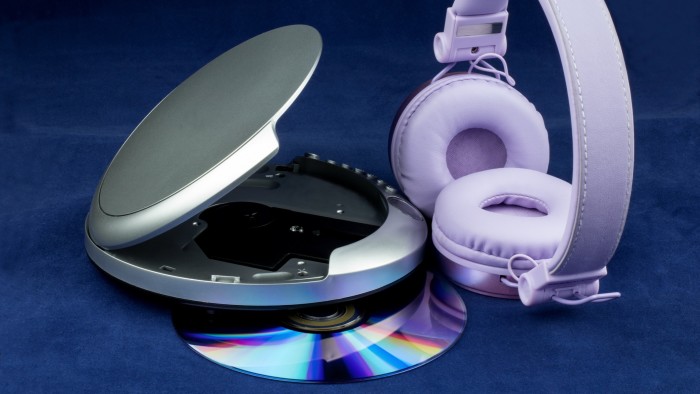Stay notified with totally free updates
Just register to the Innovation myFT Digest– provided straight to your inbox.
On my 13th birthday, my moms and dads offered me a portable CD gamer and the work of art that was Fresh Hits 1997 Like more than 600mn other individuals, I have actually long because switched my box of CDs for the Spotify app on my phone. However I discovered my old birthday present just recently and found it still worked. Even utilizing earphones from the 1990s, I was staggered by the richness of the noise.
My ears didn’t trick me. CDs have a bit-rate of 1,411 kilobits per 2nd, which is a step of just how much information is utilized to represent noise. Spotify Premium varies from 24 kbps to 320 kbps, while totally free Spotify listeners are restricted to 160 kbps at finest. I understand this is barely news to music fanatics. Neil Young, who reluctantly returned his music to Spotify this year after a spat including Joe Rogan, grumbled, “There is a lot tone missing out on that you can barely feel the level of sensitivity.”
If numerous countless typical music listeners (like me) have actually chosen to trade audio quality for benefit and range, then reasonable enough. However what perturbed me is that I didn’t understand that’s what I ‘d done. I had actually merely forgotten just how much better music utilized to sound.
There ought to be a word for this phenomenon. Qualitynesia, maybe? If using “rose-tinted glasses” is the act of believing something was much better in the past when it objectively wasn’t, this is its reverse: forgetting something was much better in the past when it objectively was.
This is barely brand-new. In 1937’s The Roadway to Wigan Pier, George Orwell argued that a century of mechanisation had actually aggravated the quality of food, furnishings, homes, clothing and home entertainment, however that the majority of people didn’t appear to care. He blamed “the terrible debauchery of taste” instead of cumulative amnesia, however. “Mechanisation causes the decay of taste, the decay of taste causes the need for industrial posts and thus to more mechanisation, therefore a vicious cycle is developed,” he composed.
The majority of the time, top quality alternatives continue in a specific niche method, however they end up being more pricey or bothersome, reasonably speaking, and less individuals either remember what they’re missing out on, or want or able to pay the additional. In the UK, for instance, clothes represented 10 percent of the typical household’s costs in 1957; in 2015 it represented 3 percent.
There are, naturally, lots of counter-examples of items which have actually enhanced in quality in time, such as computer systems and phones. All the exact same, my realisation about music left me with the concern: what exists on the planet today which individuals will have qualitynesia about in the future? One apparent location to look is the imaginative sector upon which AI is now starting to intrude.
Research study up until now recommends that when individuals understand something “imaginative” was made by AI, they discover it average and soulless. However if they do not understand, they rather like it. A current research study discovered that individuals could not differentiate AI-generated poems from human ones, and in fact chosen AI poems “in the design of” well-known poets such as William Shakespeare and Sylvia Plath to genuine poems by those poets. The scientists’ theory is that the AI poems were less difficult.
Likewise, Coca-Cola’s brand-new AI-made Christmas advert, a variation of its well-known “Vacations are Coming” one from the 1990s, was popular when checked on individuals who weren’t informed it was AI. Andrew Tindall from System One, which carried out the tests, informed me that was due to the fact that the AI variation was leaning greatly on “a fantastic imaginative concept developed over thirty years back, by a human marketing group that has actually constructed that concept and bought it over thirty years.”
That sounds comforting for individuals who wish to think in the irreplaceable worth of human imagination. And in any case, even if individuals liked one AI advert does not suggest they would delight in AI movies or books, which matter more to the majority of us. What’s more, history does use some examples of individuals reacquiring a taste for quality. A brand-new generation of youths is now driving a little increase in CD sales, for instance.
Yet the upsetting idea remains. If individuals simulate AI-remixes of familiar-feeling, once-human material, and if they’re significantly tough to find and more affordable to produce, we might wander into a world of progressively intensifying remixes of previous remixes of previous remixes. And by that point, would we even understand what we ‘d lost?
Joni Mitchell when sang: “Do not it constantly appear to go, that you do not understand what you have actually got ’til it’s gone.” However there is a sadder possibility: that by the time it’s gone, you do not even bear in mind that paradise was much better than the parking area.
sarah.oconnor@ft.com


